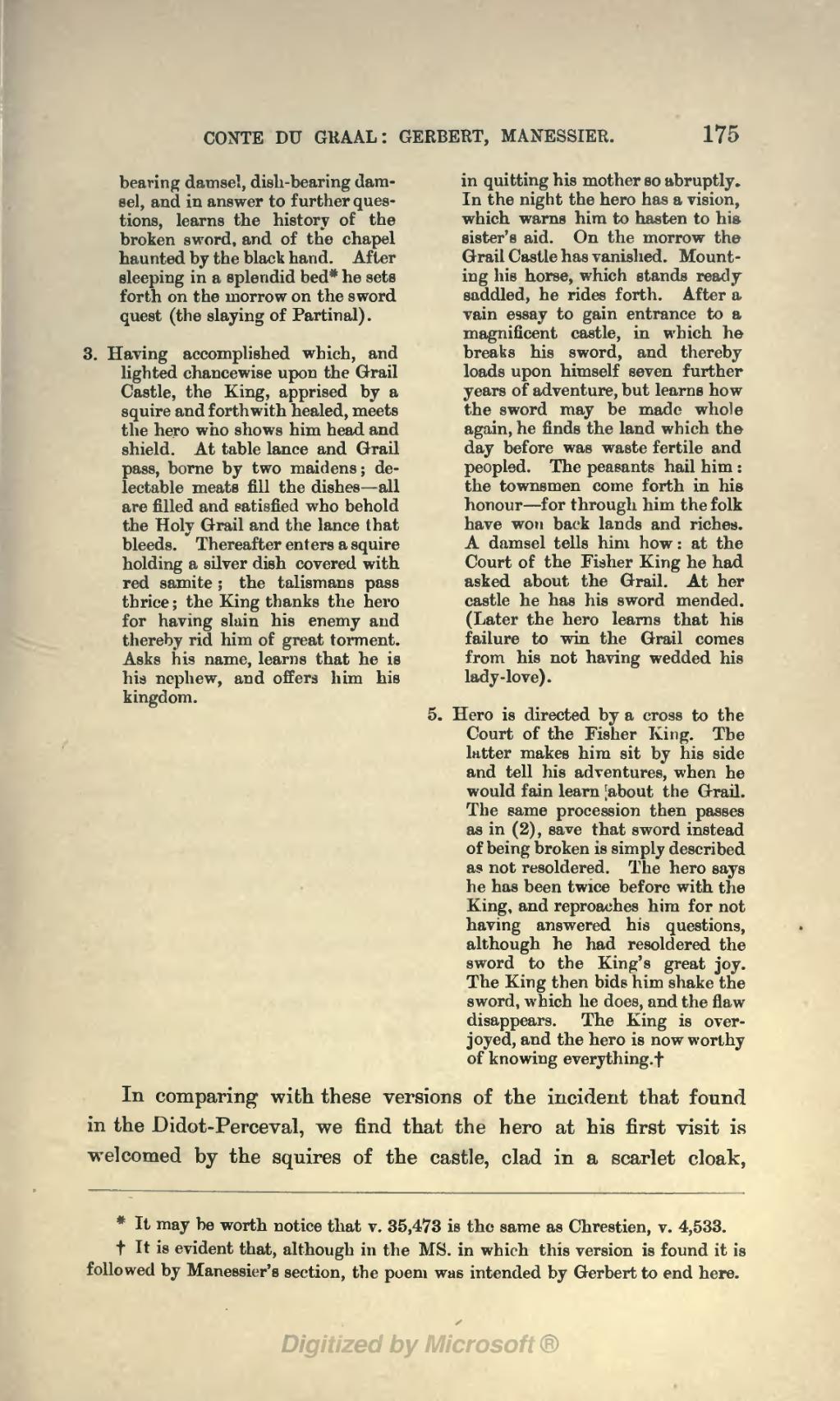This page has been validated.
CONTE DU GRAAL: GERBERT, MANESSIER.
175
bearing damsel, dish-bearing damsel, and in answer to further questions, learns the history of the broken sword, and of the chapel haunted by the black hand. After sleeping in a splendid bed[1] he sets forth on the morrow on the sword quest (the slaying of Partinal).
3. Having accomplished which, and lighted chancewise upon the Grail Castle, the King, apprised by a squire and forthwith healed, meets the hero who shows him head and shield. At table lance and Grail pass, borne by two maidens; delectable meats fill the dishes—all are filled and satisfied who behold the Holy Grail and the lance that bleeds. Thereafter enters a squire holding a silver dish covered with red samite; the talismans pass thrice; the King thanks the hero for having slain his enemy and thereby rid him of great torment. Asks his name, learns that he is his nephew, and offers him his kingdom.
|
in quitting his mother so abruptly. In the night the hero has a vision, which warns him to hasten to his sister's aid. On the morrow the Grail Castle has vanished. Mounting his horse, which stands ready saddled, he rides forth. After a vain essay to gain entrance to a magnificent castle, in which he breaks his sword, and thereby loads upon himself seven further years of adventure, but learns how the sword may be made whole again, he finds the land which the day before was waste fertile and peopled. The peasants hail him: the townsmen come forth in his honour—for through him the folk have won back lands and riches. A damsel tells him how: at the Court of the Fisher King he had asked about the Grail. At her castle he has his sword mended. (Later the hero learns that his failure to win the Grail comes from his not having wedded his lady-love).
5. Hero is directed by a cross to the Court of the Fisher King. The latter makes him sit by his side and tell his adventures, when he would fain learn about the Grail. The same procession then passes as in (2), save that sword instead of being broken is simply described as not resoldered. The hero says he has been twice before with the King, and reproaches him for not having answered his questions, although he had resoldered the sword to the King's great joy. The King then bids him shake the sword, which he does, and the flaw disappears. The King is overjoyed, and the hero is now worthy of knowing everything.[2]
|
In comparing with these versions of the incident that found in the Didot-Perceval, we find that the hero at his first visit is welcomed by the squires of the castle, clad in a scarlet cloak,
